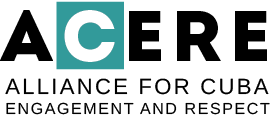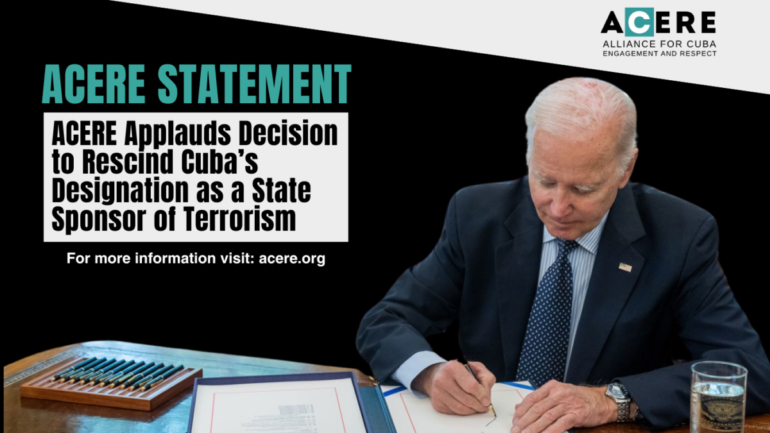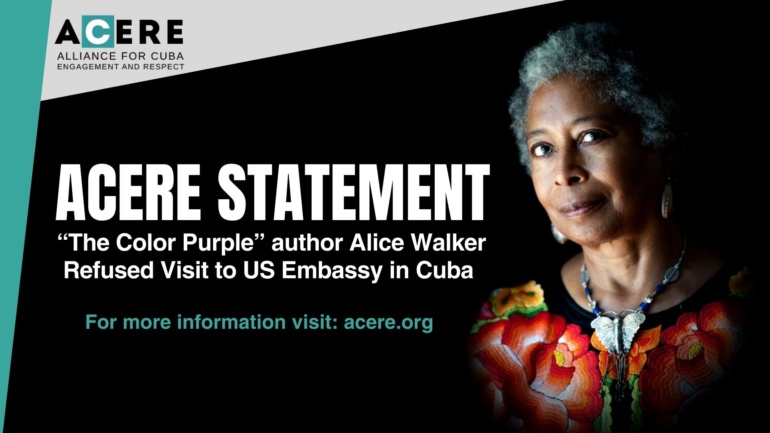ACERE notes that at last week’s 79th United Nations General Assembly in New York, nearly 50 heads of state and government called on the United States to either rescind the baseless designation of Cuba as a state sponsor of terrorism (SSOT) or move to lift the decades-long trade embargo against the island-nation, making Cuba among the most mentioned foreign policy issue at the annual meeting of world leaders. U.S. allies in Africa, Asia, Oceania, Latin America and the Caribbean urged the Biden administration to amend its Cuba policy in the interest of advancing shared goals of sustainable development, food security, peace-building, inclusive growth and respect for international law across countries in the developing world.
The Foreign Minister of the United States’ top trading partner (Mexico), Alicia Bárcena, said that “six-decade long economic blockade violates international law,” while the president of Angola, João Laurenço, whom President Biden will visit next week in his only visit to Africa as president, said that “U.S. blockade increases the population’s suffering and impedes social and economic advancement” in Cuba. The president of strategic U.S. ally Guyana, Irfaan Ali, said that Cuba’s “right to development continues to be stymied by the economic embargo,” while the prime minister of Barbados Mia Amor Mottley, with whom Kamala Harris has met at least twice as Vice President, said that “the Cuban people continue to face the most dire economic circumstances” as a direct result of its inclusion on the list of state sponsors of terrorism, which she called “a mark on our international consciousness.” Vietnamese president To Lam, with whom President Biden met for the third time in New York the day before Lam traveled to Cuba for an official state visit, said that lifting the SSOT designation and embargo would be “concrete and practical actions contributing to equitable development” on the island.
The repeated references to Cuba at UNGA underscore the increasing isolation of the United States with respect to its current policy toward Cuba, which will only be further sharpened at an upcoming October 29 vote at the United Nations, where it is expected that the vast majority of countries will ratify their opposition to the embargo on Cuba and call on the U.S. to immediately lift it. At last year’s vote on the annual UN resolution, 187 countries supported the resolution, while Ukraine abstained and the United States and Israel opposed. In 2016, even the United States voted to abstain, with current USAID administrator and then-UN ambassador Samantha Power saying that U.S. policy toward Cuba had “isolated the United States, including right here at the United Nations.” In that same speech, Power lauded U.S.-Cuba cooperation in the fight against the ebola epidemic in West Africa, calling it an example of “what the United Nations looks like, when it works” and concluding that the U.S. Congress must end the embargo “once and for all.”
ACERE urges the Biden administration, in the spirit of international law and respect for the UN charter, to heed Power’s words – and those of our allies across the world – by taking meaningful steps in its remaining three months to amend and modernize its policy toward Cuba – “once and for all.”



